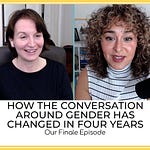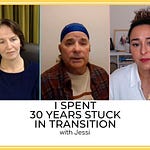In this episode, Sasha and Stella reflect on the Bigger Picture Conference in Lisbon, discussing notable takeaways from various speakers. A key theme explored is how the gender debate has expanded into a multidisciplinary conversation, no longer just confined to therapists or concerned parents but drawing in academics, sociologists, and political thinkers worldwide.
Their discussion covers a range of topics, including institutional capture, mass formation theory, societal movements, the roles of parents—particularly mothers—in navigating gender questioning, the ethics within the field of gender medicine, and the power of truth in countering ideological extremism.
Be sure to check out Genspect’s YouTube channel to watch all of the speakers’ presentations. Check back often for new releases!
While many speakers presented at the conference, a few notable presentations reviewed in this episode include:
Helen Joyce
Dr. Frank Furedi
Mattias Desmet
Bob Withers
Jaco van Zyl
Marcus Evans
Dr. Peter Boghossian
Mia Hughes
Emma Thomas
Alex Capo
Dr. Julia Mason
Jesper Rasmussen
Dr. Stephen B.Levine
Eldur Smári Kristinsson
Several of these speakers have also been featured as guests on Gender: A Wider Lens. Check out their episodes linked below!



















